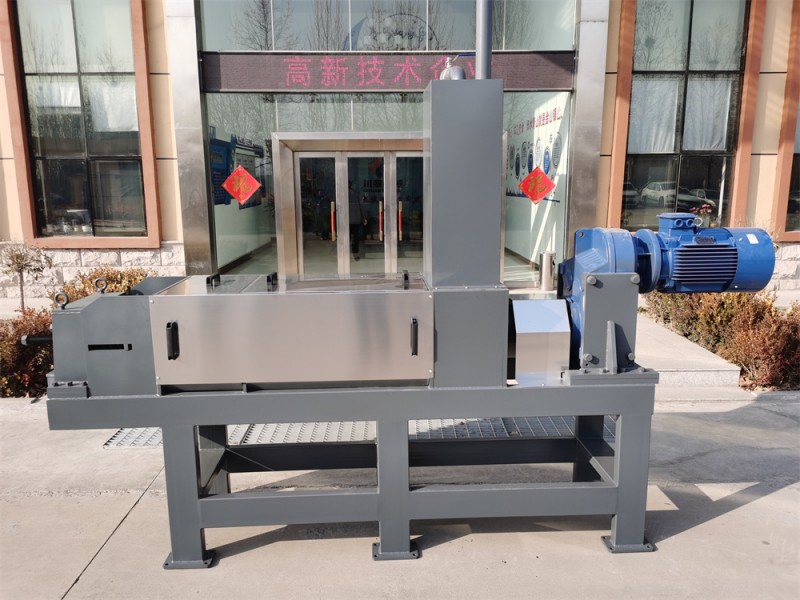
Dairy farming is an important agricultural activity that provides milk and dairy products to meet the growing global demand. However, it also generates a significant amount of cow manure, which, if not managed properly, can pose environmental challenges. To address this issue, cow manure dewatering machines have emerged as efficient tools for solid-liquid separation, offering dairy farms a sustainable solution for waste management. This article aims to explore the benefits and applications of cow manure dewatering machines in dairy farm operations.
Working Principle:
Cow manure dewatering machines employ a mechanical process to separate solid and liquid components in cow manure. The machine typically consists of a screw press mechanism or a mechanical compression system. The cow manure is fed into the machine, where it undergoes a series of steps to extract the liquid fraction and produce dewatered solids.
Inside the machine, a rotating screw or piston applies pressure to the cow manure, gradually squeezing out the liquid content. As the pressure increases, the liquid fraction, which is rich in nutrients and organic matter, is forced out, while the dewatered solids, with reduced moisture content, are discharged. The separated liquid can be collected for further treatment or used as fertilizer, while the dewatered solids can be utilized as organic fertilizer or for other beneficial applications.
Benefits:
Waste Management: Cow manure dewatering machines provide an effective solution for managing dairy farm waste. By separating the solid and liquid components, these machines reduce the volume of cow manure, making it easier to handle, transport, and dispose of. This helps minimize odor, reduces the risk of pollution, and enhances overall farm cleanliness.
Nutrient Recovery: The separated liquid fraction obtained from the dewatering process is nutrient-rich, containing valuable organic matter, nitrogen, phosphorus, and potassium. This liquid can be stored, treated, or used as liquid fertilizer, providing a sustainable source of nutrients for crops, thus reducing the need for synthetic fertilizers and closing the nutrient cycle.
Resource Utilization: The dewatered solids obtained from cow manure can be utilized as organic fertilizer. These solids are rich in organic matter and nutrients, making them an excellent soil amendment that improves soil structure, enhances nutrient availability, and promotes crop growth. Using the dewatered solids as fertilizer reduces the dependency on chemical fertilizers and supports sustainable agricultural practices.
Odor Control: By removing a significant portion of the liquid content from cow manure, dewatering machines help control and minimize foul odors associated with manure storage and handling. This not only improves the working conditions for farm personnel but also reduces the impact on nearby communities and the environment.
Applications:
Cow manure dewatering machines find applications in various areas, including:
Dairy Farms: These machines are essential for managing cow manure on dairy farms, enabling efficient waste handling, reducing odor, and facilitating nutrient recovery.
Agriculture: The separated liquid fraction can be used as liquid fertilizer, providing essential nutrients for crop production and promoting sustainable farming practices.




If your company wants to establish a business relationship with us, please briefly describe the cooperation intention and send an email to:chuantaiscrewpress@gmail.com























































































![[list:title]](/static/upload/image/20240528/1716877114510915.jpg)